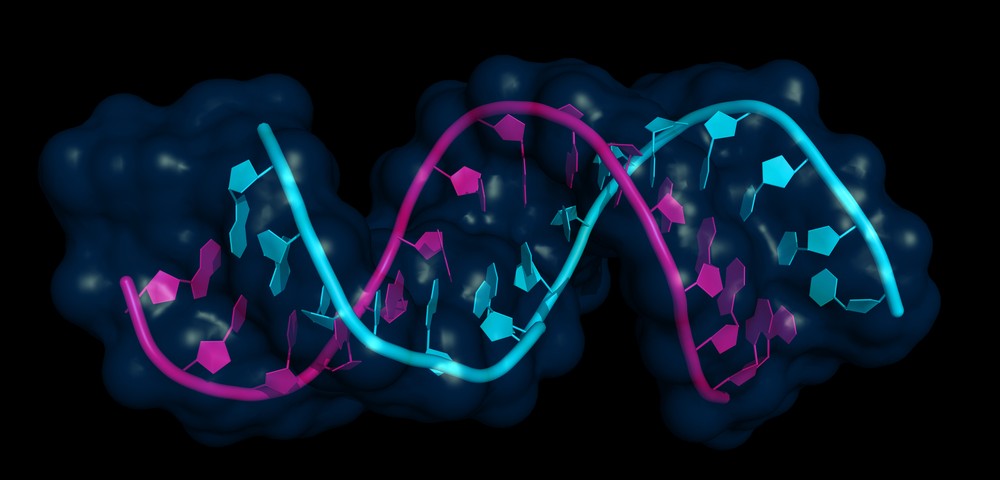A new type of RNA therapy, spherical nucleic acid (SNA), looks promising in the first human trial in patients with psoriasis. The results were recently presented at the American Chemical Society (ACS) meeting by SNA pioneer and Exicure founder Chad Mirkin of Northwestern University, showing that SNAs appear safe and there is future potential for a possible curative dose for psoriasis. Although this is only an initial trial, it is an important — and hopeful — first step.
The main objective of RNA therapy, often called antisense RNA, is disrupting the production of harmful proteins associated with diseases like cancer and HIV. Protein production starts when the DNA code is translated into messenger RNA (mRNA), single-strand RNA that then migrates to the cells’ protein factories, the ribosomes, where the RNA code is converted into amino acids, the building blocks of proteins.
Some diseases are characterized by an excess of a certain protein, such as tumor necrosis factor-α (TNF-α) in the case of psoriasis, which overstimulates the immune system leading to an excess of inflammation that results in the red, scaly skin lesions observed in patients. The RNA therapy basically consists of the injection into cells of RNA strands that bind to specific mRNA strands, blocking the translation into proteins.
Although the therapy appears straightforward, it has been plagued by a lack of efficacy and, to date, only two antisense RNA therapies have been approved in the U.S. One of the main problems is that the linear antisense RNA sequences get destroyed before they reach their target.
SNAs are small spheres with approximately 100 identical RNA sequences attached to a central particle, often made of lipids (fatty molecules), which allow SNAs to get inside the cells and prevents them from being chopped up by enzymes. This design has the potential for use in treating many disorders.
Earlier this year, Illinois-based Exicure started an SNA trial targeting TNF-α in people with psoriasis, according to the recent ACS presentation. The initial results of this trial suggest that SNAs are safe and there appears to be a dose-dependent response in knocking down TNF-α. This has raised hopes that eventually doctors will be able to find a curative dose for psoriasis.
Mirkin emphasized, however, that there is still a long way to go to prove that SNAs are an effective therapy for psoriasis.


